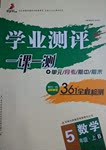题目内容
【题目】阅读理解
阅读下列短文,从每题所给的四个选项(A、B、C和D)中,选出最佳选项
Different people use different languages. We Chinese speak Chinese, and, most of us are learning a foreign language. But there is another kind of language we need to know — the language of the body.
All over the world, people “talk with their hand, with their heads and with their eyes.” When Japanese people meet, they bow. When Indians meet, they put their hands together. What do American and British do? Americans are more informal (不拘小节的) than the British. They like to be friendly. They use first names, they ask questions and they talk easily about themselves. When they sit down, they like to relax in their chairs and make themselves comfortable. British people are more reserved (保守的). They take more time to make friends. They like to know you before they ask your name.
When British or American people meet someone for the first time, they shake hands. They do not usually shake hands with people they know well. Women sometimes kiss their women friends, and men kiss women friends (on one cheek only). When a man meets a man, he just smiles, and says, “Hello.” Men do not kiss each other, or hold hands. Even fathers and sons do not often kiss each other.
【1】In the passage, the writer thinks that body language is ________.
A. useless
B. difficult
C. quite easy
D. important
【2】Which of the following is right?
A. Different countries have the same body language.
B. Different countries have different body languages.
C. People in Asia share the same body language.
D. Many people only use their body language.
【3】If an American friend visits you, he probably ________.
A. sit straight
B. never sits down
C. makes fun of you
D. sits freely
【4】If you want to make a British friend, you may feel it ________.
A. impossible
B. too easy
C. too difficult
D. slow
【答案】
【1】D
【2】B
【3】D
【4】D
【解析】文章主要介绍了肢体语言很重要,不同国家的人有不同的肢体语言。
【1】D细节理解题。根据第一段中But there is another kind of language we need to know — the language of the body.可知,作者认为肢体语言很重要,也需要了解。故选D。
【2】B推理题。通读全文内容可知,不同国家的人有不同的肢体语言。故选B。
【3】 D推理题。根据第二段中Americans are more informal (不拘小节的) than the British. 可知,美国人不拘小节,你可以坐着。故选D。
【4】D细节题。根据第二段中They take more time to make friends.可知,和英国人交朋友很慢。

 活力课时同步练习册系列答案
活力课时同步练习册系列答案 学业测评一课一测系列答案
学业测评一课一测系列答案